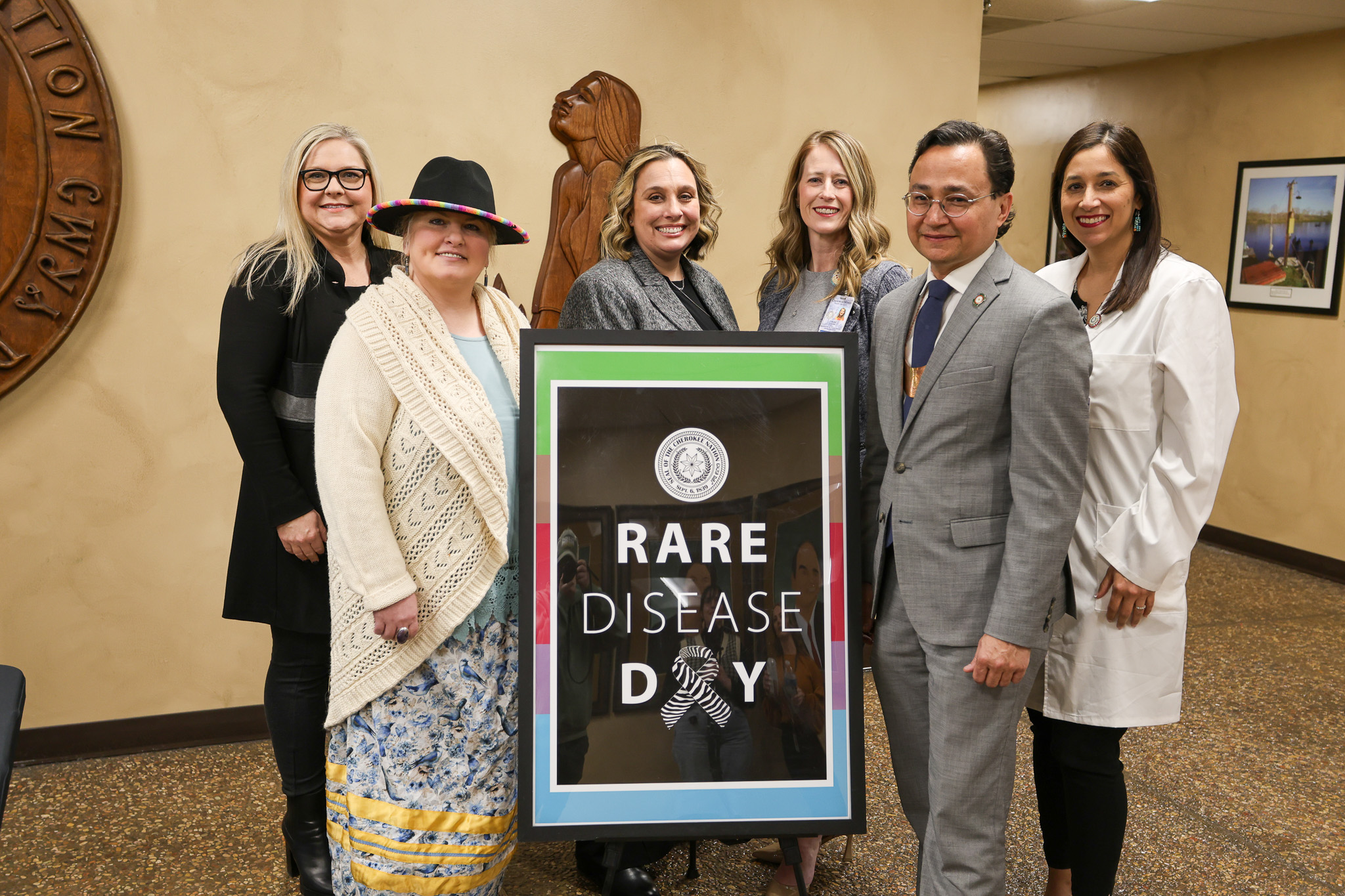
- Details
- By Chuck Hoskin Jr
Guest Opinion. About 7,000 identified rare diseases impact approximately 1 in 10 Oklahomans. The Cherokee Nation's first Rare Disease Summit on Nov. 21 marks a crucial step toward addressing the too often overlooked health care needs of this population. The summit embodies the tribe’s deep commitment to helping our citizens with complex health challenges.
Cherokees deserve help, treatment and hope – especially those who’ve long felt unseen by the health care system due to their unique conditions. This summit is particularly significant to me and First Lady January Hoskin, who has openly shared her own journey in battling a rare disease. We understand the profound physical and financial impacts of rare diseases — not only on individuals, but on their families trying to navigate what can be expensive and unclear health care decisions.
This informative gathering, organized by Cherokee Nation Health Services, aims to close gaps in health care access and ensure that every patient at Cherokee Nation Health Services feels seen and heard, no matter how rare their condition may be. Participants will hear from medical experts in neurology, rheumatology, and infectious diseases in both panel discussions and question-and-answer sessions as they discuss multidisciplinary approaches for tackling rare health conditions.
First Lady Hoskin and I, along with the Committee on Rare Diseases formed in 2020, hope to bring individuals out of isolation and into a supportive community. No one is alone, and we stand together every step of the way.

According to the National Institutes of Health, any disease affecting fewer than 200,000 people in the United States is considered rare, and more than 90% lack FDA-approved treatments. Cherokee Nation’s health care system, the largest and most effective in Indian Country, is committed to finding solutions and increasing resources for people with the conditions. We are raising awareness, advocating for policy change, and building a growing support network.
The Nov. 21 summit represents a powerful step forward in health equity and community support within the Cherokee Nation Reservation. I encourage anyone interested in or affected by rare diseases to participate in the summit. Sign-up is free, with lunch and a resource fair provided from 11 a.m. to 12:30 p.m. Register at cherokee.org/rare-disease-summit, where additional details are available.
Cherokee Nation believes no one should feel overlooked or marginalized, and with this summit in place, we have a real opportunity to amplify the voices of those who struggle with a rare disease.
Chuck Hoskin, Jr. is the principal chief of the Cherokee Nation.
More Stories Like This
Disrupting Poverty Through OpportunitySanctuary Cities Under Siege: When Federal Power Becomes a Weapon Against the People
Denmark's Genocidal Practices in Greenland
Cherokee Nation Stands Against Predatory Lending
Tribes Seek Better Data, Real Accountability in MMIP Cases Ahead of Tribal Consultation
Help us defend tribal sovereignty.
At Native News Online, our mission is rooted in telling the stories that strengthen sovereignty and uplift Indigenous voices — not just at year’s end, but every single day.
Because of your generosity last year, we were able to keep our reporters on the ground in tribal communities, at national gatherings and in the halls of Congress — covering the issues that matter most to Indian Country: sovereignty, culture, education, health and economic opportunity.
That support sustained us through a tough year in 2025. Now, as we look to the year ahead, we need your help right now to ensure warrior journalism remains strong — reporting that defends tribal sovereignty, amplifies Native truth, and holds power accountable.
 The stakes couldn't be higher. Your support keeps Native voices heard, Native stories told and Native sovereignty defended.
The stakes couldn't be higher. Your support keeps Native voices heard, Native stories told and Native sovereignty defended.
Stand with Warrior Journalism today.
Levi Rickert (Potawatomi), Editor & Publisher

